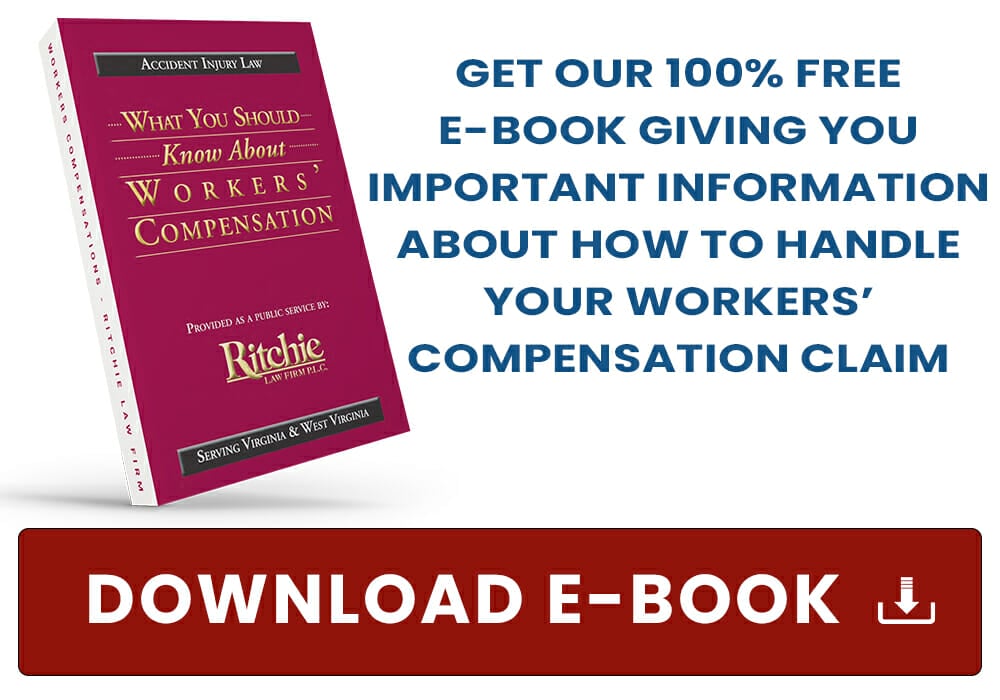How To Give Notice To Your Employer After a Virginia Workers’ Compensation Injury
After you’ve been injured on the job in Virginia, you will probably be thinking mostly about going to the doctor and recovering from your injury. In addition to recovery, the injured employee also needs to be thinking about giving notice of his or her injury to the employer. Many employees assume that because a co-worker or someone else at their job knew about their injury, that’s all the notice that is needed. But, there are requirements governed by Virginia law about giving notice to your employer. If the legal requirements are not met, your workers’ compensation claim may be denied.
What’s the Point of Giving Notice?
Giving notice of your injury or occupational disease to your employer in a timely manner serves several purposes. First, until an injured worker give notice of an injury or disease, he or she is not eligible for wage loss or medical benefits. Also, giving notice within the time limits allows the employer to do an investigation, if necessary, and check any equipment that may have been involved. If safety defects caused the injury, notice allows the employer to quickly address the issue before other employees are injured in the same manner. Notifying the employer in a timely fashion also allows the employer to provide medical care to the injured employee. Lastly, when the employer receives notice of an injury or disease, the employer is then required to file a report with the Virginia Workers’ Compensation Commission within 10 days.
What Does the Law Say?
So, what does Virginia law actually say about giving notice after a Virginia workers’ compensation injury? Virginia Code § 65.2-600 states that an injured employee (or someone who is acting for the employee) has to report the injury immediately or as soon as practical by giving written notice of the injury to the employer. Failure to give notice of an injury within 30 days of the accident may prevent you from getting payment for your wage losses as well as any medical benefits you may be entitled to. For an occupational disease, on the other hand, Virginia law allows for 60 days from the date your doctor communicates the diagnosis of the disease to you to report it to the employer. Again, failure to report your disease to your employer could result in the denial of your claim.
What Should the Notice Say?
A notice to an employer about a work accident should state the employee’s name and address as well as the time, place, nature, and cause of the injury. The notice needs to be signed by the employee, or someone on the worker’s behalf if the employee is unable to sign. The notice of work accident should then be given to the worker’s supervisor.
Can I Still Get Benefits If I Didn’t Give Notice?
The failure to give notice doesn’t always mean that you won’t get workers’ compensation benefits. Many times, our firm has been able to help injured workers get their workers’ comp benefits even if they failed to give notice. Virginia law says that an employee may be excused from giving notice if the employer was aware of the accident or if the injured worker was not able to give notice due to injury or mental incapacity. Sometimes, if an employer, supervisor, department head, etc. has witnessed or is aware of the accident, that may count as actual notice.
If you failed to give notice of your work accident but you have a reasonable excuse, your employer may still claim that it was prejudiced and deny benefits. Usually, prejudice will amount to the employer not being able to provide medical treatment for the worker or not being able to timely investigate the accident. If the employer is successful in showing prejudice in not having notice of the accident, the injured worker may be prevented from receiving workers’ comp benefits.
What Can You Do?
If you’ve been injured on the job and have questions about notice or any other part of your Virginia Workers’ Compensation claim, the best thing to do is talk to an experienced workers’ compensation attorney before you talk to anyone else. A lawyer who is not experienced with handling Virginia workers’ compensation claims may not know important details about workers’ comp law, such as the importance of giving notice of your injury or that Virginia workers’ comp law doesn’t allow for recovery of pain and suffering.
Talk To a Virginia Workers’ Compensation Lawyer
If you’ve been burned on the job, it is wise to talk to a lawyer who is experienced in workers’ compensation claims. At the Ritchie Law Firm, you can talk to us for FREE . . . NO STRINGS ATTACHED! We can give you advice on your claim before you make a decision that could damage your case. Check out our article on “How Much Does a Workers’ Comp Lawyer Cost” here.
For more than 45 years, the Ritchie Law Firm has successfully helped thousands of injured workers navigate the complex workers’ compensation process. The Ritchie Law Firm specializes in serving injury victims. We never represent insurance companies or corporations. If your workers’ compensation case is going to hearing, you will want a trial expert on your side. We are board certified trial specialists through the National Board of Trial Advocacy. The attorney you choose for your workers’ compensation case can make all the difference.
Virginia Workers’ compensation is a complex system that can be very difficult to navigate. Be very careful to make certain that your rights are protected before you sign anything. There is no cost to talk to our workers’ comp lawyers. If we take your case, we don’t get a fee unless we win your case. There is no risk to you to get some information about your case before you make any decision that might negatively affect its outcome.


